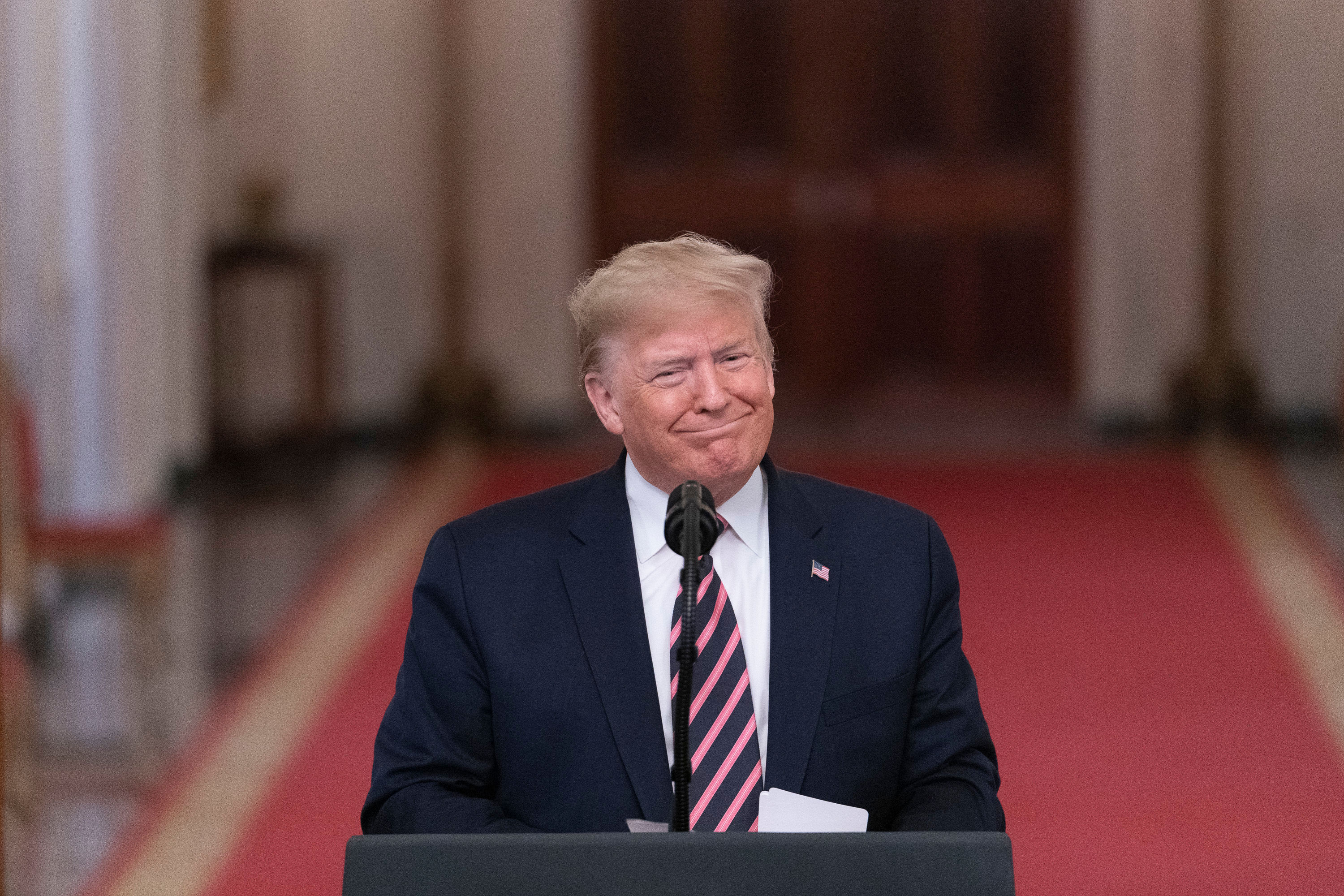Trump Vetoes NDAA Defense Bill Lacking Sec. 230 Limitations
Says section is security risk

The smarter way to stay on top of the multichannel video marketplace. Sign up below.
You are now subscribed
Your newsletter sign-up was successful
As promised, President Trump has vetoed the 2021 National Defense Authorization Act, a massive defense policy bill that he had opposed for, among other things, that it did not include amendments that would have taken aim at social media's Sec. 230 immunity from civil liability over third party content moderation.
The House passed the bill Dec. 11 by a vote of 377 to 48. The Senate passed it Thursday (Dec. 17) by a veto-proof vote of 86 to 8, so it could override the veto, but that will likely take until early January.
Also Read: Trump Threatens Sec. 230-Related Veto
Aiming his comments at Congress, he said in his veto message: "Your failure to terminate the very dangerous national security risk of Section 230 will make our intelligence virtually impossible to conduct without everyone knowing what we are doing at every step. The Act fails even to make any meaningful changes to Section 230 of the Communications Decency Act, despite bipartisan calls for repealing that provision. Section 230 facilitates the spread of foreign disinformation online, which is a serious threat to our national security and election integrity. It must be repealed."
Also Read: Sen. Graham Introduces Sec. 230-Killing Bill
Both Republicans and Democrats in Congress have issues with the breadth of that shield as employed by companies whose wealth and power rival many countries. Republicans, including the President, argue it is used to censor conservative speech with impunity, while Democrats argue it is used for the dissemination of fake news and the making of political mischief with impunity. But the most likely scenario is that Congress clarifies its limits, as some are trying to do with amendments to the must-pass defense appropriations act.
Even social media sites, notably Facebook, have called for some kind of regulation, including tweaking the section, but that is partly to avoid the greater threat of elimination.
The smarter way to stay on top of the multichannel video marketplace. Sign up below.
President-elect Joe Biden has even called for deep-sixing the immunity, though that is unlikely given the section's importance to the social media model.
Trump has been fighting social media liability immunity on multiple fronts, mandating that the National Telecommunications & Information Administration petition the FCC to modify Sec. 230.
The FCC under Chairman Ajit Pai has said it has the authority to make changes, and Pai once signaled the FCC would take up the petition. But he is leaving next month and is not likely to tackle the issue before then.
The President has also yet to sign the funding bill that includes billions for broadband and potentially millions in small business loans for broadcasters, calling it a disgrace and calling on Congress to fix it.
Contributing editor John Eggerton has been an editor and/or writer on media regulation, legislation and policy for over four decades, including covering the FCC, FTC, Congress, the major media trade associations, and the federal courts. In addition to Multichannel News and Broadcasting + Cable, his work has appeared in Radio World, TV Technology, TV Fax, This Week in Consumer Electronics, Variety and the Encyclopedia Britannica.

